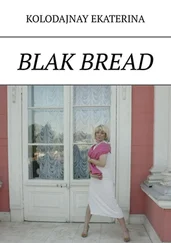Grandmother stopped knitting and listened attentively as they argued. Cry-Baby and I sat frowning next to her, by her knitting basket, and pretended we weren’t listening. The grownups were arguing in front of us, yet again. The only precaution they took was to suppress names or words that were too familiar, too loaded, and their words floated in the air, hazy and inconclusive, giving their squabbles the aura of an unfinished story we had to round off in our imaginations. A hollowness separated our two worlds, a space like an empty chamber where the air got colder or hotter depending on the temperature or the interest in the issue at stake and the tone of voice. In my view, Aunt Enriqueta’s reaction was incomprehensible, in Cry-Baby’s too, as I could tell from the look on her face. Perhaps, I thought, it showed how that hollow void was bigger than I suspected, much more significant than we realized, like those islands of ice that only reveal the peak of the mountain hidden under the water.
“Blasted politics…” mumbled Grandmother without looking up, “it was blasted politics that brought on the war.”
The two sisters shut up to allow Grandmother to speak. Both turned round to look at her, sitting on her pew and listening. It was more out of respect than any readiness to heed what she said.
“Politics is a very confusing business and maybe they weren’t ready to get as involved in it as they did. We were in no position to keep them in school, and ignorance is the mother of all evil.”
“Don’t say that, Mother,” said Enriqueta, as combative as ever, “both sides had their educated and non-educated. And some who’d never crossed the doorstep of a school made it to general… Effort and courage also count for something.”
“Don’t, love,” Grandmother insisted, “things would have turned out very differently if they’d all had a good profession. Idee-as…” She used to say “idee-as.” We all spoke like her. But we never spoke about idee-as. “Idee-as…idee-als from what I’ve read, I gather idee-as have as much or more power than weapons, and the hotheads we had to listen to were donkeys with only one idee-a in their heads, and that was to put an end to the grief in their bellies, and they could only repeat party slogans and trot out fantasies, just like the clergy now and the blue shirts…”
Grandmother stopped, and the two sisters waited a second before resuming their bickering, now in a less strident, calmer tone.
“That’s why it’s so important for someone in the family to get some schooling,” concluded Aunt Ció. “Not everyone can study, or has the brain to do so.”
“I don’t know what’s got into you,” Aunt Enriqueta wasn’t relenting, “to make you think that schooling is the solution to everything. Lots of people get rich now, from black-marketeering or smuggling, and they don’t have any schooling. And all the old soldiers who work in the town halls and unions and the regime’s offices don’t have a diploma between them and only know how to wave a pistol… And they are the ones giving out the orders!”
“I don’t understand where you’re going with this…” said Aunt Ció, sorrowfully.
“I don’t want to go anywhere. It’s only that I’m amazed the way you jump to orders from masters who only want to keep you tied to the land, their land, forever. Don’t count on me, or, I reckon, on Bernat to follow suit! Any day now he’ll land a job in Vic or a small town, and you’ll be left on your own with Jan and a couple of hands. And young Quirze will do the same when he sees the kind of life he can expect.”
The two women turned to look at Grandmother, then shut up. Grandmother had picked up her needles and was knitting head down, as if she wasn’t hearing a thing.
“Now’s not the time to talk about all this,” said Aunt Ció, seeming to want to put an end to the argument. “Quirze has got other things on his mind, and we can’t pile any more on him. It was as much he could do to go upstairs and put on a performance for the masters. And haven’t Mr. and Mrs. Manubens behaved considerately given the hue-and-cry we’ve had here… in all the time we’ve had the water up to our necks? Have they ever said anything or interfered with us, or asked whether we were on this side or that, or held against us what Lluís and Fonso got up to during the war? And they weren’t exactly shrinking violets! Even though they, the masters, that is, were persecuted and forced to go into hiding, like so many in the war! Not a single word of recrimination! Not one word! They said nothing, even at the time!”
“Because they didn’t know what the score was here. If they’d have known, we’d soon have seen how they reacted…” started Aunt Enriqueta, but then she suddenly broke off. She gently leaned her body to one side, as if she wanted to grab a chair to sit on, and Ció, who was opposite her, with her back to the kitchen door, looked at her, speechless. Until, a moment later, she swung round and saw Uncle Quirze poised in the doorway, quiet and still as a mannequin, his face red and his eyes aflame.
None of us budged and finally Uncle Quirze stepped forward, hands in pockets, staring at Aunt Enriqueta, who kept her head down and said nothing.
“We were saying…” stammered Aunt Ció, apologetically, as if trying to draw a veil over the argument. “Enriqueta knew nothing about the boy’s schooling… she’s been away a few days keeping Florència company…”
But Dad Quirze wasn’t listening. Keeping his eyes on Aunt Enriqueta, he took two more steps forward, until he was standing next to his wife. Aunt Enriqueta looked up and now looked sadly at him, as if regretting everything she’d said, but then she stiffened her back and prepared to meet the onslaught. Keeping his hands firmly in his pockets, as calm as could be, in a determined, harsh voice, Uncle Quirze said: “So we should be off to live in the factory town, should we?”
Aunt Enriqueta said nothing, was deathly silent in the middle of the kitchen. Aunt Ció walked quickly over to where Grandmother, Cry-Baby and I were, as if she wanted to protect us: “Don’t react like a bull to a red rag. It was only her way of talking.”
But Uncle Quirze appeared to ignore her, as if he’d not heard what she’d said. He waited a moment and then launched into Aunt Enriqueta: “As far as I know, we chain nobody to this house, nobody is here under compulsion and if someone reckons they’ll be treated better somewhere else, the doors are open and they can clear off when they want to run, no need to wait a minute longer, nobody will stand in their way.
“Drop it,” begged Aunt Ció, helping Grandmother to tidy away her wool and needles. “It’s not worth devoting another second to it. They were idle comments. Talk for talk’s sake.”
Aunt Enriqueta’s voice seemed tinnier, more strident than usual, though not at all weak or fearful. She spoke resolutely: “And why can’t we say that these masters screw us for as much as they can, and that you’d be much better off in town, in a factory, in any job in fact, with more free time and a regular wage? The tenants in La Bruguera have already left, and the ones in Can Tona are thinking about it, and at least they have stood up to their masters.”
“All this only makes people restless and unhappy at home. Makes them dream that outside their farm, in any town or city the streets are paved with gold and all is fine and dandy. The La Bruguera folk will do what they want and so will the Can Tona crew, everybody knows what’s wrong there and how they’ve got to get their act together. Have the people in La Bruguera ever helped you, or the masters or tenants in Can Tona for that matter?”
“I’m not saying…”
“No, you say the first fucking thing that comes into your head, you never think, you do your own thing, as if you were the queen, and to hell with everyone else.”
Читать дальше












